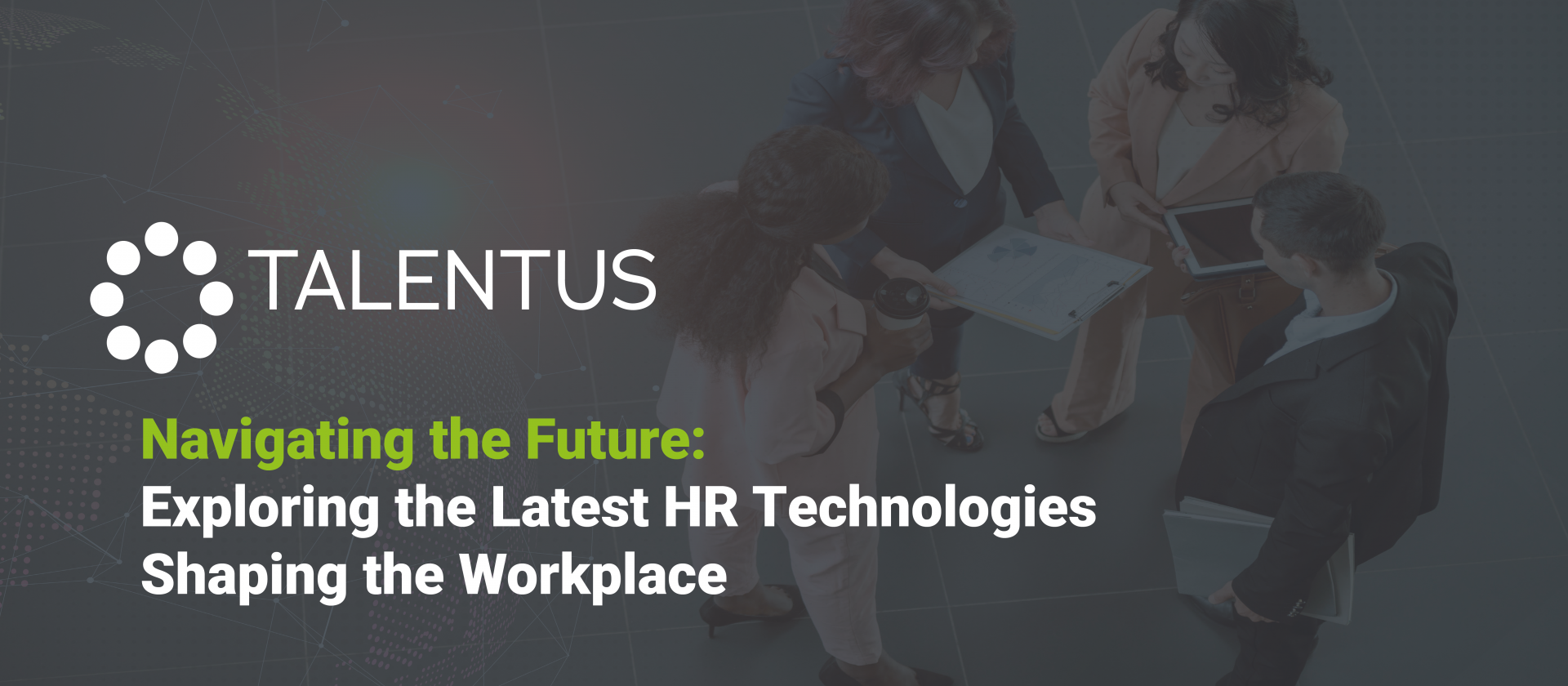In the ever-evolving landscape of Human Resources (HR), staying abreast of the latest technologies is essential for organizations aiming to enhance efficiency, engage employees, and drive strategic decision-making. In this blog, we’ll explore some of the cutting-edge technologies revolutionizing HR practices and reshaping the way businesses manage their most valuable asset – their people.
1. Artificial Intelligence (AI) and Machine Learning (ML): AI and ML are at the forefront of HR innovation, transforming various aspects of the employee lifecycle. From automated resume screening to predictive analytics for employee performance, AI is streamlining recruitment processes, minimizing biases, and providing actionable insights for strategic HR decision-making. Machine learning algorithms can analyze vast datasets, identifying patterns and trends that contribute to more informed talent management strategies.
2. Robotic Process Automation (RPA): RPA is revolutionizing repetitive and rule-based tasks within HR processes. Mundane tasks such as data entry, payroll processing, and benefits administration can be automated, allowing HR professionals to focus on more strategic and value-added activities. RPA not only enhances accuracy and efficiency but also reduces the risk of errors in routine HR operations.
3. Chatbots and Virtual Assistants: Chatbots and virtual assistants are transforming the way HR interacts with employees. These intelligent systems can handle routine queries, provide information about company policies, and guide employees through various HR processes. By offering instant responses and support, chatbots enhance the employee experience and free up HR professionals to focus on more complex tasks.
4. Employee Engagement Platforms: Advanced employee engagement platforms leverage data analytics and AI to measure and improve employee engagement. These platforms often include features like pulse surveys, sentiment analysis, and real-time feedback mechanisms. By gathering insights into employee satisfaction and sentiments, HR teams can proactively address concerns, boost morale, and create a positive workplace culture.
5. Cloud-Based HR Systems: Cloud-based HR systems are becoming the backbone of modern HR operations. These systems offer scalability, flexibility, and accessibility, enabling HR professionals to manage employee data, recruitment processes, performance evaluations, and training programs from anywhere. Cloud-based solutions facilitate collaboration among remote teams and ensure data security and compliance.
6. Augmented and Virtual Reality (AR/VR): AR and VR technologies are finding applications in HR for immersive training experiences, onboarding, and even virtual workplace tours. These technologies enable employees to engage in realistic simulations, enhancing learning and development initiatives. AR and VR also have the potential to transform the recruitment process by offering virtual interviews and assessments.
7. People Analytics: People analytics involves using data-driven insights to make informed decisions about workforce strategy. By analyzing HR data, organizations can gain insights into employee performance, identify areas for improvement, and make strategic decisions regarding talent acquisition, retention, and development. Advanced analytics tools enable HR professionals to predict future trends and align HR strategies with organizational goals.
8. Blockchain in HR: Blockchain technology is gaining traction in HR for enhancing security, transparency, and efficiency in various processes. It can be applied to verify the accuracy of employee credentials, streamline the background check process, and ensure the integrity of HR records. Blockchain has the potential to reduce fraud, errors, and discrepancies in HR data, fostering trust and compliance.
The integration of these latest HR technologies signifies a paradigm shift in the way organizations manage their human capital. As HR professionals navigate the complexities of talent management, recruitment, and employee engagement, embracing these technologies becomes not just a choice but a strategic imperative. By leveraging the power of AI, RPA, chatbots, and other advanced tools, HR teams can foster a more agile, data-driven, and employee-centric workplace, ensuring their organizations are well-equipped for the challenges and opportunities of the future.
